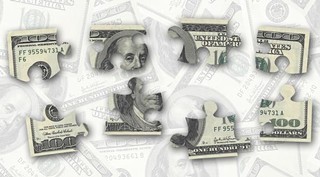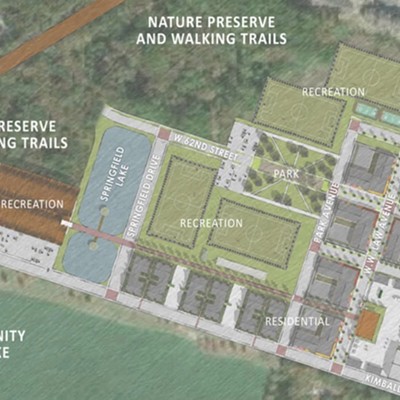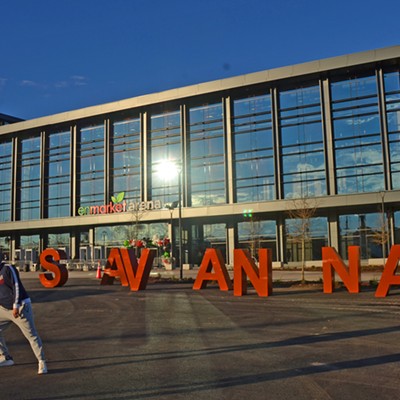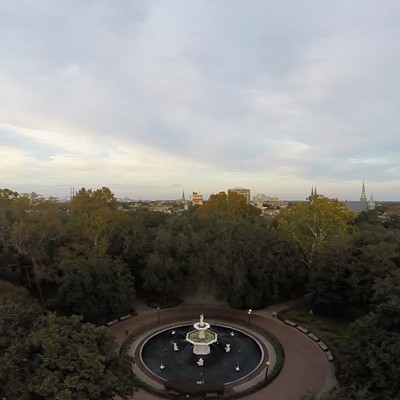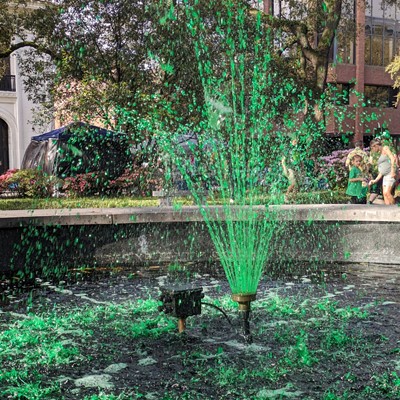There was something missing from the City’s annual budget retreat last week: the budget. The annual multi–day event is usually when Mayor, Council and Staff convene to discuss the upcoming year’s financial decisions.
All involved reconvened this week for two full-day sessions once the budget was finally prepared. But even with a proposed budget in hand, many questions and concerns still exist.
The issues attracting the most attention from council are their promise to return the millage rate to at most 12.5, and the perceived decline in maintenance and upkeep in parks, squares and medians around the city.
A deficit of several million dollars in the 2010 budget (caused by depressed property values and lower than expected sales tax revenue) necessitated a slight increase in the millage rate from 12.5 to 13. Reserve funds were used to close the rest of the gap.
According to budget projections, the appraised value of real estate in the city is likely to decline again next year as well. Even with the small increase in the millage rate, the total revenue from property taxes was still down in 2010.
Although all of council has been supportive of the return to 12.5, which they promised after public outcry about the increase this summer, District 3 Alderman Larry Stuber has been pushing for a decrease to 12.0 - a move that would cost an additional $2.4 million in revenue.
With local elections looming in November 2011, providing a modicum of financial relief to citizens, while simultaneously giving an across the board pay raise of two percent to city employees, has become a sticking point in discussions about how to maintain current municipal service levels as revenues decline.
Monday and Tuesday’s meetings have centered on trying to balance those priorities in the best way possible.
Cleaning up
One area where the Mayor and council would like to see improvement is the landscaping and maintenance of squares and medians.
“We have a fundamental problem with the upkeep of our public spaces,” said Mayor Otis Johnson during the Monday meeting.
Citing displeasure at the condition of River Street, the median on Victory Drive and several other areas, members of council have asked to hear plans for how to keep them looking better.
One potential fix will be the creation of a Downtown Services department, who will handle comprehensive maintenance and beautification. Several additional services will be consolidated into the Citizens Liaison Office, including 3–1–1.
While consolidating services might improve accountability, running counter to the clean up efforts is a decrease in litter service. In 2010, crews picked up litter on 165,000 city blocks, but only 110,000 are budgeted in 2011. Additionally, crews emptied litter baskets 76,839 times in 2010, but are only budgeting for 38,000 next year.
Another new plan aimed at beautification includes cross–training property maintenance code and sanitation code inspectors in order to ensure that problems are not being overlooked and can be cited and remedied more effectively.
Last year, the budget stated expectations for 18,500 citations to achieve compliance. The projected number of achieved compliances is closer to 7,519. Next year’s goal is 20,500.
The 2011 budget also features an increase in the allotment for Equine Services to deal with “urine hot spots” downtown.
Nothing is certain
A proposed budget was delivered last Friday, outlining the basic proposals for the following year, however, it is still subject to considerable negotiations amongst council and staff. There will also be some public input later this month, before mayor and council vote on its final approval in mid-December.
Despite the lack of details, there are definite plans to consolidate several departments with the goal of reducing administrative costs and improving some services.
Besides the creation of the new Downtown Services department, significant changes to the Film & Tourism Office are likely.
One of the major cost–saving strategies will be proposed early retirement offers for nearly 300 city employees who would meet eligibility requirements. No employees would be forced into early retirement, according to presentations during the retreat, however, the reorganization of several departments will likely lead to several dozen layoffs.
Festivals
During the meeting last Tuesday, Council paid serious attention to the Leisure Services and Cultural Affairs budget.
After the initial budget was revised downward by 18 percent in August, several difficult decisions had to be made regarding the 2011 festival schedule. The Cultural Affairs Commission identified the Asian Festival and Picnic in the Park as the two events that, while popular, were using the most City funds without any matching fundraising of their own.
Members of council vowed to find a solution that would allow the festivals to continue. The total needed to restore the original funding level was about $144,000. At the meeting Monday morning, it was decided that both festivals would receive some funding, although about 20 percent less than was requested.
Water fees
Although homeowners will realize savings from the decreased millage rate, the one area that will see a slight fee increase will be in the water bill.
Initial proposals budgeted for a $1.65 increase in monthly water service, necessary to generate capital for improvements to the water system.
Resources Director Bob Scanlon was quick to point out that even with the modest increase, Savannah’s water services would still be significantly less expensive than in Charleston or Atlanta, among other Southeastern cities.
After objections by Mayor and council to the fee increase, staff is currently analyzing whether a compromise would be possible, perhaps an increase of fifty cents, that would enable investment in future capital projects without excessively burdening residents.
Revenues and reserves
Prospects for economic recovery are expected to be slow at best, dampening forecasts for revenues in 2011. But there are a few bright spots, including better than projected Hotel/Motel tax revenues. The rate of per-visitor spending in the city was also higher than expected.
However, those gains were not nearly enough to offset the decline in property and sales taxes.
Despite the expectation that tax revenues will decrease again in 2011, city staff was forthright in its intention not to balance the budget using reserve funds.
Some questions were raised, however, about the exact level of reserves. Earlier this year, a reserve fund containing more than $20 million was brought to the attention of mayor and council. Its existence was central in discussions leading up to the vote on the millage rate hike.
During the retreat, Mayor Johnson asked staff to compile a list of the total reserve funds available, which seem to be scattered across several different accounts.
“This council never knows how much money we really have,” Johnson stated.
Alderman Stuber noted that he’d spent time looking into reserve funds, and although he didn’t mention how much of the total funds were restricted to specific areas, he said he had found as much as $175 million in total reserves.
Earlier this week, Chief Financial Officer Dick Evans explained that using reserves to balance the budget would have a negative effect on the City’s bond rating.
While matters of budget were first and foremost, one of the major successes of the City during 2010 is one that has gotten surprisingly little attention overall.
The poverty rate declined by nearly two percent; the first notable decrease in nearly 30 years, and something it is certainly deserving of applause for the efforts of mayor, council and Step Up Savannah, among others.

